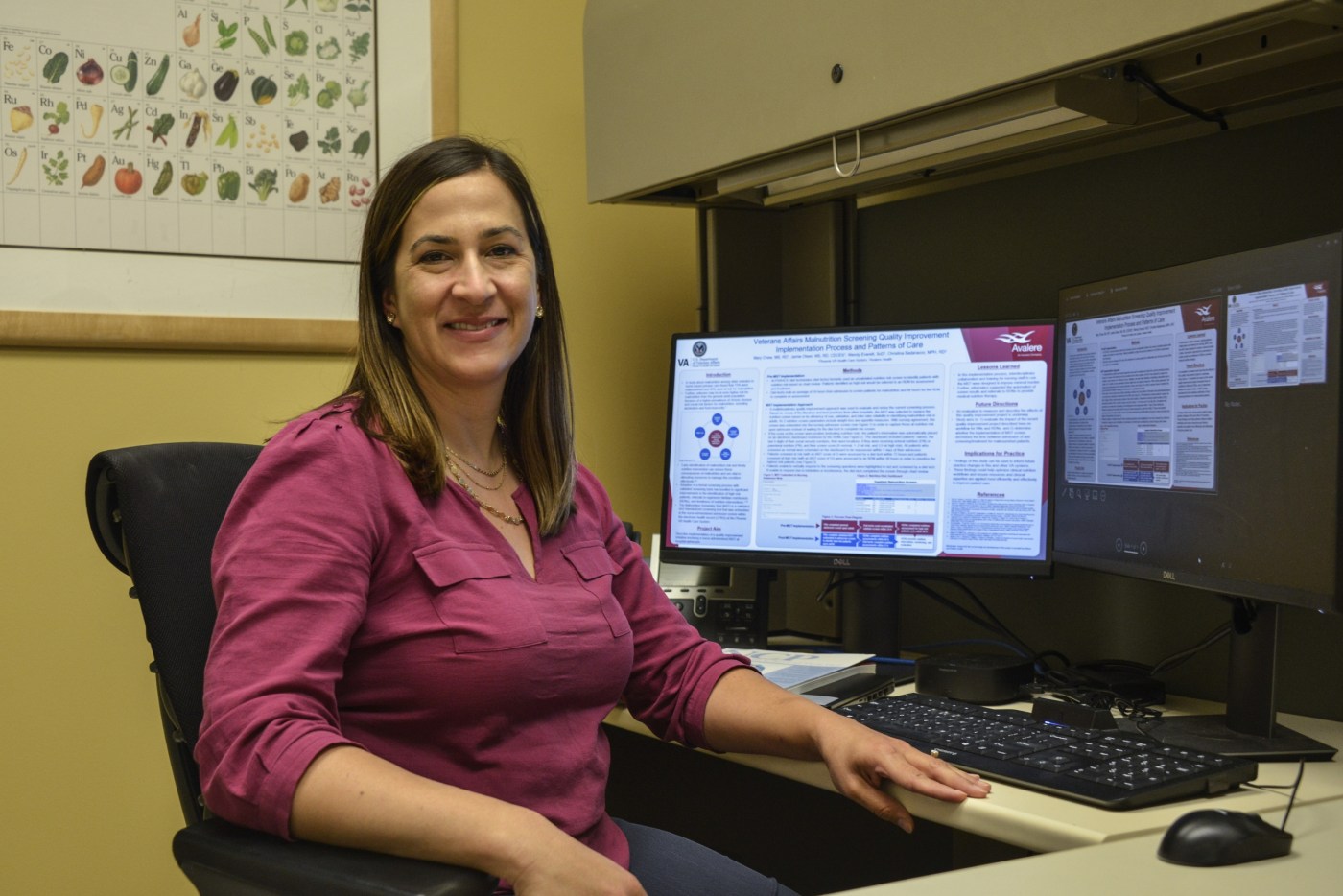Mary Chew is a research dietitian at the Phoenix VA Health Care System. She’s leading a team that is working on a quality improvement project to evaluate the process used to screen for malnutrition in Veterans admitted to the hospital. Early identification of malnutrition risk and timely nutrition treatments are key to allocating resources to effectively manage the condition.
Chew and her colleagues use a malnutrition screening tool (MST) for all patients admitted to the Phoenix VA hospital, three-quarters of whom are 65 and older, a demographic that is susceptible to malnutrition.
Non-VA researchers created the tool in 1999 as a quick way to identify hospitalized adult patients at risk for malnutrition who may benefit from nutrition programs. In a 1999 study, the researchers tested the tool in an adult population of 408 acute care patients. They found its accuracy for assessing whether someone is malnourished to be between 93% and 97%. The tool includes two questions clinicians ask patients upon admission:
- Have you lost weight recently without trying?
- Are you eating poorly due to decreased appetite?
Someone who answers yes or unsure to the first question earns two points. Those who answer yes to the second question get a point. A score of at least two requires follow up by a dietetic technician, and a score of more than three requires follow up by a registered dietitian. A dietetic technician promotes nutritional and wellness programs and designs balanced meals. A registered dietitian analyzes a patient’s health status, goals and dietary restrictions, tracks dietary intake and progress, and educates patients on how to maintain a balanced diet.
Preliminary results from Chew’s quality improvement project show that more patients have been diagnosed with malnutrition at Phoenix VA since the researchers began using the MST to screen patients for malnutrition. Chew says the official results will be published soon.
At Phoenix VA, Chew gives presentations to medical trainees to educate them on the challenges of Veteran malnutrition. After serving as a dietitian in the intensive care unit, she became interested in improving nutrition support for critically ill patients and got involved in a series of multisite research and quality improvement projects, some of which have not been published.
Those projects, she says, have been a “great steppingstone” to collaborating with other nutrition professionals, developing protocols, and leading the implementation and evaluation of other quality improvement projects that have enhanced the identification and treatment of malnutrition. Focusing on nutrition support, she has also worked closely on studies with oncology and gastroenterology physicians.
Chew spoke with VA Research Currents, below.
VA Research Currents: What influenced you to get involved with Veteran malnutrition?
Chew: I have always been interested in providing nutrition therapy to Veterans with acute and chronic illnesses that prevent them from being able to meet their nutrition needs. This population is particularly at risk for becoming malnourished and, as a dietitian, I have seen the negative impact malnutrition has on the ability to recover from illness, tolerate life-saving treatments such as chemotherapy, and regain quality of life. It was from these experiences with Veterans that I became passionate about preventing and treating malnutrition in this vulnerable population.
Are Veterans susceptible to malnutrition?
The Veteran population is a unique demographic that often struggles with chronic conditions, mental illness, poverty and food insecurity. Food insecurity is a lack of a consistent access to food for a healthy and active lifestyle. Veterans have been shown to experience higher rates of malnutrition than their civilian counterparts, likely due to these issues. Additionally, access to food is essential to maintaining wellness, putting homeless Veterans at higher risk for malnutrition.
More information
Click here to read the rest of the story.
Click here to learn more about VA research.
Topics in this story
More Stories
In a new series that highlights advancements in VA health care, VA researchers and clinicians are appearing on a Veteran-themed media platform—Wreaths Across America Radio—to tout their critical work.
Recently published findings from the VA Disrupted Care National Project [...]
Diverse representation of women in health care research allows MVP to make discoveries for women’s health






